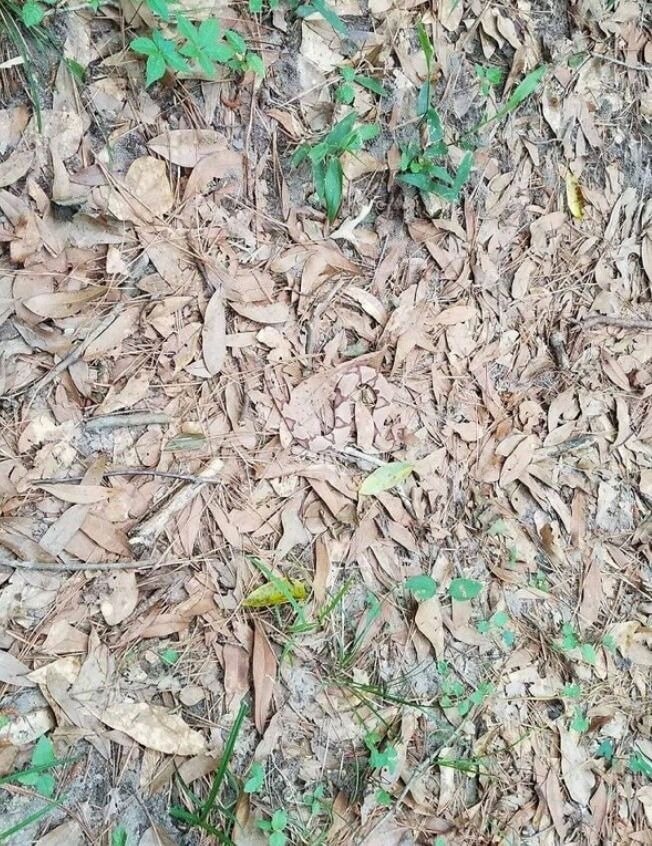When you venture into the great outdoors, particularly forests, it’s essential to be extra cautious. There are countless insects and creatures that can pose a threat to our safety. Recently, Missouri Wildlife posed a challenge on Facebook, asking the online community to identify what was hidden beneath the dried foliage. The response left many scratching their heads in confusion. The caption accompanying the image served as a reminder of why it’s crucial to watch every step in the woods.
The snake in question is a Copperhead, one of the most common venomous snakes in North America. While their bites are rarely fatal to humans and their venom is relatively mild, it can still cause temporary damage to muscles, affect the circulatory system, and even result in breathing difficulties. Despite their mild venom, Copperheads’ sharp fangs can cause skin damage. The good news is that prompt treatment can reverse the effects of a Copperhead bite.
According to Live Science, Copperhead snakes are pit vipers, similar to rattlesnakes and water moccasins. They have heat-sensory pits on each side of their heads, located between their eyes and nostrils. These pits enable them to detect even the slightest temperature differences, helping them strike their prey with precision. In fact, Copperheads are responsible for about 2,920 out of the 7,000 to 8,000 snake bites that occur in the United States each year.



